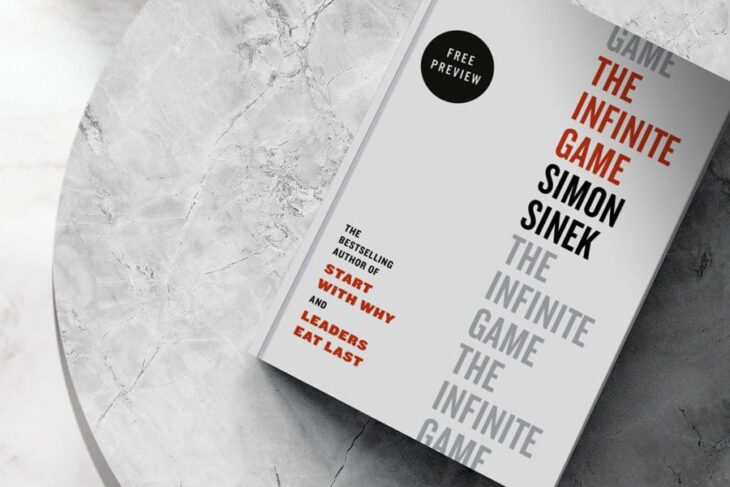
How do you feel about playing the long game? Well, according to Simon Sinek, the bestselling author of numerous business and leadership books, we should all be looking a lot further ahead.
The Infinite Game explores leadership choices, and provides guidelines to implement an “infinite game” plan. Finite mindsets focus on winning, whereas infinite mindsets develop a more significant cause than ourselves or our business. Collaborating with others, around a shared purpose, builds a better resourced, and more caring world.
Sinek wrote The Infinite Game in 2019, as part of his own infinite game. His previous books, Start with Why, and Leaders Eat Last, lay the foundation for this, and his inspiration came from a book called Finite and Infinite Games. The author of Finite and Infinite Games, James Carse, explains how finite-minded leaders play to win, whereas infinite-minded leaders play to keep playing, ultimately for the good of the game. Building from this, Sinek evaluates finite and infinite leadership within different institutions, and he illustrates how remarkably different the results of each mindset can be.
This summary briefly guides us through the choice to adopt a finite or infinite mindset. As the players in the game of life, this is a crucial choice that we all have to make. Whether you’re in business, politics, academics, or a parent, we all need to realize that an infinite or finite mindset will impact others, long after we’re gone. So if you’re interested in understanding the qualities required for leadership, The Infinite Game provides crucial insights.
We All Understand a Finite Game
If you open up any board game, there’s usually a pamphlet containing the rules. We understand these games. For instance, if you play chess, Monopoly, or Settlers of Catan, there’s a clear set of rules, and the aim is to come first. In the world of sports, the aim is to beat opponents, cross the finish line, get the highest score, or beat the clock. These are finite games, and they’re centered around the self, competition, and our innate need to win.
If we apply this to business, currently, many businesses play a finite game, driven by short-term market gains and shareholder demands. They aim to create a winning company in terms of measurable results. But the reality is that each leader’s time runs out, but the game lives on. And in business, careers, politics, and parenting, there’s no such thing as an end-game winner.
Did you build Lego as a child? Irrespective of age, most of us know Lego. That’s because it’s a company that has used an infinite mindset for a long time. Instead of always focusing on the balance sheet, it consistently keeps its purpose, which is ‘to create innovative play experiences, and reach more children every year.’ A truly successful business is one where a succession of leaders play the infinite game, building something sustainable, that will contribute to the welfare of its staff and customers, and benefit future generations.
Many businesses start out playing an infinite game, but that mindset can shift under new leadership. On the other hand, some organizations make a decision to shift from a previous finite mindset, to see what’s possible with an infinite mindset.
Finite and Infinite Mindset Leaders
There’s a fundamental difference between a finite-mindset leader, and an infinite-mindset leader. Adopting an infinite mindset, requires conscious choice and assertive action, which isn’t always easy. Choosing to lead with an infinite mindset, is like deciding to get into better shape, and consistency beats intensity. If we decide to focus on our health, we need to make certain long-term lifestyle choices, and prioritize things such as diet, sleep, and exercise. Similarly, if a business leader wants an organization to have long-term health, he or she will have to do five things – and importantly – do them all.
Number one, advance a Just Cause. Number two, build trusting teams. Number three, study your worthy rival.
Number four, prepare for existential flexibility, and finally number five, demonstrate the courage to lead.
So let’s unpack these, starting with a Just Cause.
read more please click here